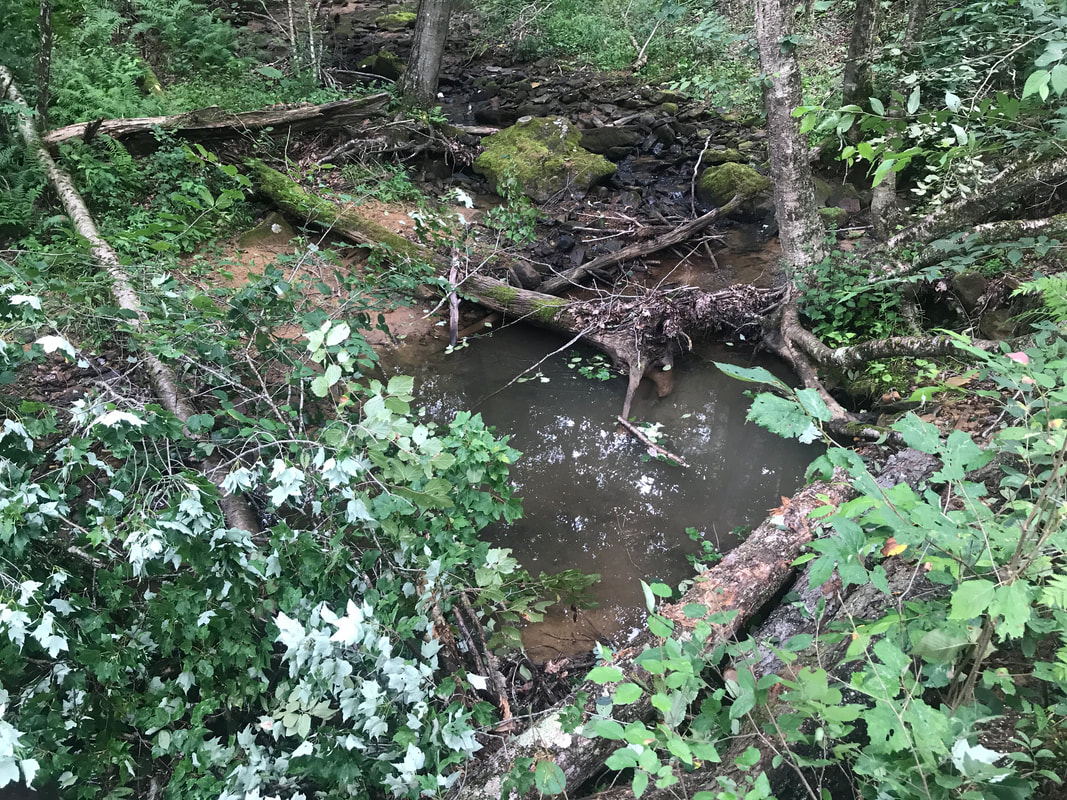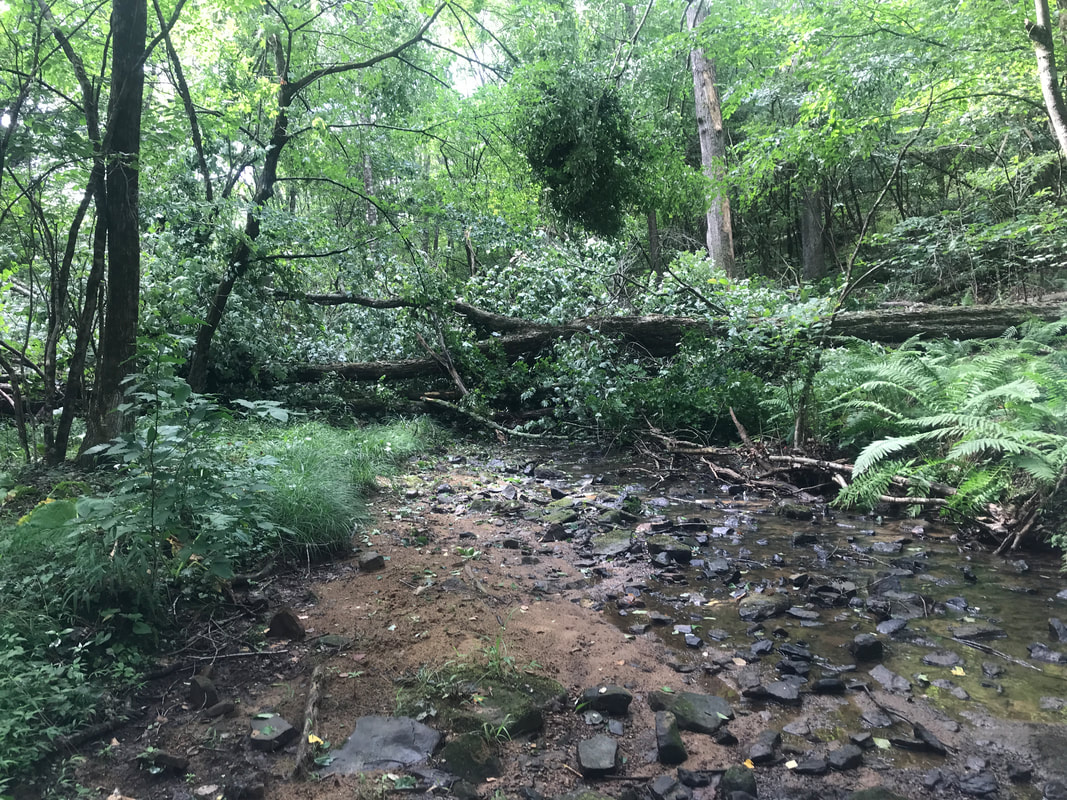|
Trout Unlimited’s Bullion Run Large Wood Addition Project Stream restoration staff from Trout Unlimited were busy carefully creating fish habitat and improving stream function on Bullion Run earlier this month. A tributary to Scrubgrass Creek in Clinton Township, Bullion Run is a designated cold water fishery that supports naturally reproducing trout populations. During the week of August 7, a large wood addition project aimed to improve habitat conditions for coldwater species resilience. A Growing Greener grant was awarded to Trout Unlimited in 2019 and was used to implement a streambank stabilization project at the mouth of Bullion Run. The remaining funds from this grant were used to support this large wood addition project. Also known as strategic wood addition, this “chop and drop” technique involves cutting trees of various sizes using chainsaws and felled into the stream, and are often mechanically moved using winches or heavy machinery to create different structure types. At the height of industrial logging in the nineteenth century, much of our forests including riparian cover were removed from the landscape. Streams were removed of material including fallen trees and boulders that could impact navigability primarily for the timber harvesting industry. These changes altered the stream’s flow velocity and channel patterns that often led to many ecological consequences that are still encountered today. Streambank erosion, entrenched channels, and the lack of complex habitat resulted from the removal of woody material from streams. Without the presence of pool features that downed trees create, streams are void of important spawning areas for coldwater fish species and its ability to absorb some of the harsh effects of flooding. By simulating natural recruitment of woody material, pools are able to form, banks are protected from erosion, and base flows become colder. A stream with a diverse pattern of features such as riffles, pools, and runs perform different functions for the aquatic plants and animals living in it. Macroinvertebrates including insects, crustaceans, and mussels rely on diverse habitat types for feeding, reproduction, and protection from predators. Sensitive fish species such as trout depend on high dissolved oxygen levels that cold water provides, as well as the availability of macroinvertebrates as an important food source. Many of these habitat requirements are addressed through the presence of wood additions, whether natural or human-induced, to streams. Large wood additions are a useful tool for creating habitat and improving stream function, but is not an all-encompassing solution for reintroducing wood in streams. In the long term, protection and reintroduction of riparian forests allows a natural process of woody debris recruitment to ensure a biologically diverse stream ecosystem that ensures environmental, recreational, and economic benefits. Further Reading: Penn State Extension: Benefits of Large Woody Debris in Streams, Trout Unlimited: A Beautiful Mess, The Freshwater Trust: Benefits of Large Wood Structures in Rivers
2 Comments
|
CATEGORIESs
All
Archives
July 2024
|



